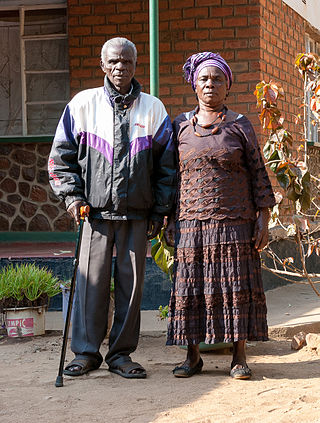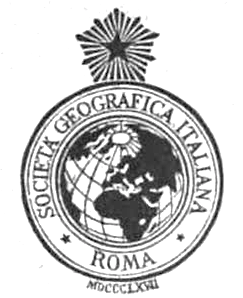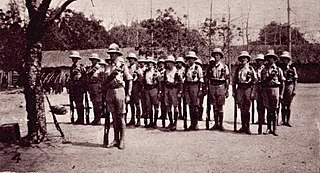Related Research Articles
Chinese historiography is the study of the techniques and sources used by historians to develop the recorded history of China.

Manchuria is a term that refers to a region in Northeast Asia encompassing the entirety of present-day Northeast China, and historically parts of the modern-day Russian Far East, often referred to as Outer Manchuria. Its definition may refer to varying geographical extents as follows: the Chinese provinces of Heilongjiang, Jilin, and Liaoning but broadly also including the eastern Inner Mongolian prefectures of Hulunbuir, Hinggan, Tongliao, and Chifeng, collectively known as Northeast China; the aforementioned regions plus the homelands of ancient Jurchen and their descendant Manchus, parts of these region were ceded to the Russian Empire by the Manchu-led Qing dynasty during the Amur Annexation of 1858–1860, which include present-day Amur Oblast, Primorsky Krai, the Jewish Autonomous Oblast, the southern part of Khabarovsk Krai, and the eastern edge of Zabaykalsky Krai, collectively known as the Outer Manchuria or Russian Manchuria.

The Tumbuka is a Bantu ethnic group found in Malawi, Zambia and Tanzania. Tumbuka is classified as a part of the Bantu language family, and with origins in a geographic region between the Dwangwa River to the south, the North Rukuru River to the north, Lake Malawi to the east, and the Luangwa River. They are found in the valleys near the rivers, lake as well as the highlands of Nyika Plateau, where they are frequently referred to as Henga although this is strictly speaking the name of a subdivision.
The Alliance for Democracy is a political party in Malawi that marked its history as laying the foundation for multi-party rule in Malawi. It began as an underground political movement during the Kamuzu Banda era and later evolved to a political party during the multi-party era under the leadership of trade union activist, Chakufwa Chihana. AFORD has a stronghold in the northern region. The president is Godfrey Shawa.
Thangata is a word deriving from the Chewa language of Malawi which has changed its meaning several times, although all meanings relate to agriculture. Its original, pre-colonial usage related to reciprocal help given in neighbours' fields or freely-given agricultural labour as thanks for a benefit. In colonial times, between 1891 and 1962, it generally meant agricultural labour given in lieu of a cash rent, and generally without any payment, by a tenant on an estate owned by a European. Thangata was often exploited, and tenants could be forced to work on the owners' crops for four to six months annually when they could have cultivated their own crops. From the 1920s, the name thangata was extended to situations where tenants were given seeds to grow set quotas of designated crops instead of providing cash or labour. Both forms of thangata were abolished in 1962, but both before and after independence and up to the present, the term has been used for short-term rural casual work, often on tobacco estates, which is considered by workers to be exploitative.
French Africa includes all the historic holdings of France on the African continent.
Scientific imperialism is a term that appears to have been coined by Ellis T. Powell when addressing the Commonwealth Club of Canada on 8 September 1920. He defined imperialism as "the sense of arbitrary and capricious domination over the bodies and souls of men," he used the term "scientific imperialism" to mean "the subjection of all the developed and undeveloped powers of the earth to the mind of man."
John Lloyd Chipembere Lwanda is a Malawian medical doctor, writer, poet, researcher, publisher, and music producer. He is a published author and also a publisher of books and music. He was an honorary senior lecturer at the University of Glasgow Department of Primary Care until 2005. Lwanda did his history and social science PhD at the University of Edinburgh's Centre of African Studies.

Ehud R. Toledano is professor of Middle Eastern history at Tel Aviv University and the current director of the Program in Ottoman & Turkish Studies. His areas of specialization are Ottoman history, and socio-cultural history of the modern Middle East.

The Chikulamayembe are a dynasty of kings established among the Tumbuka people in the Nkhamanga-Henga area of Northern Malawi. The Chikulamayembe originally ruled from around 1805, becoming weaker from the 1830s and losing power by the 1870s and their dynasty was re-established in 1907.
Sir Bryan Clieve Roberts KCMG, QC was a British lawyer, civil servant and colonial administrator.

Inkosi ya Makosi Gomani II was born Zitonga at Chipiri in present-day Mozambique. His mother was naNgondo, junior wife to Gomani I, also known as Chatamthumba.
The Society of Malawi, Historical and Scientific is a not-for-profit organisation established in 1946, as the Nyasaland Society. It changed its name after Malawi gained independence in 1964. The society aims to promote interest in literary, historical and scientific matters, discover and record facts and information about Malawi. It also acquires books relating to Malawi. The patron of the library is always the president of Malawi, the current one being Arthur Peter Mutharika

The Società Geografica Italiana formed as a geographic society in 1867 in Florence, Italy, and moved to Rome in 1872. As of 1924 it operated from headquarters in Villa Mattei in the Celio rione. The society began publishing a journal in 1868, and also sponsored scientific expeditions, such as one to Ethiopia in 1876, led by Orazio Antinori. In 1892 its members were among the first participants of the triennial Congresso geografico italiano.
Shadreck Chirikure is Edward Hall Professor of Archaeological Science at the University of Oxford where he is Director of the Research Laboratory for Archaeology and the History of Art, School of Archaeology. He holds a British Academy Global Professorship within the same School at Oxford. He is a leading archaeologist, studying ancient materials and technology, human-materials relations and history of technology.

The Nyasaland Volunteer Reserve (NVR) was a British Colonial Auxiliary Forces unit raised in the British protectorate of Nyasaland. The British Central Africa Volunteer Reserve was formally established by the colonial government in 1901 and was renamed when the protectorate became Nyasaland in 1907. In the initial years the unit was little more than a rifle shooting club with no uniform and no military training. The NVR was placed on a more formal standing in 1908 under the Volunteer Ordinance. This implemented residency and racial requirements for membership and made provision for the unit to be mobilised by the governor. The unit was initially formed of four sections but grew to seven sections by 1914 and by 1930 the unit had ten.

This is a comprehensive list of primary and secondary works by or about Benjamin Franklin, one of the principal Founding Fathers of the United States. Works about Franklin have been consistently published during and after Franklin's life, spanning four centuries, and continue to appear in present-day publications. Scholarly works that are not necessarily subject-specific to Franklin, yet cover his life and efforts in significant measure, may also be included here. In contrast, this bibliography does not include the numerous encyclopedia articles and short essays about Franklin.

Citizenship between Empire and Nation: Remaking France and French Africa is a book by Frederick Cooper published in 2014 by Princeton University Press. The work is about citizenship, colonialism, and identity in France and French North Africa from 1946 to 1960.
References
- ↑ Shadreck Billy Chirembo (1993). "COLONIALISM AND THE REMAKING OF THE CHIKULAMAYEMBE DYNASTY 1904 - 1953". The Society of Malawi Journal. 46 (2). Society of Malawi - Historical and Scientific: 1–24. JSTOR 29778687.
- ↑ Shadreck Billy Chirembo (1993). "COLONIALISM AND THE REMAKING OF THE CHIKULAMAYEMBE DYNASTY 1904 - 1953". The Society of Malawi Journal. 46 (2). Society of Malawi - Historical and Scientific: 1–24. JSTOR 29778687.
- ↑ Shadreck Billy Chirembo (1993). "COLONIALISM AND THE REMAKING OF THE CHIKULAMAYEMBE DYNASTY 1904 - 1953". The Society of Malawi Journal. 46 (2). Society of Malawi - Historical and Scientific: 1–24. JSTOR 29778687.
- ↑ Shadreck Billy Chirembo (1993). "COLONIALISM AND THE REMAKING OF THE CHIKULAMAYEMBE DYNASTY 1904 - 1953". The Society of Malawi Journal. 46 (2). Society of Malawi - Historical and Scientific: 1–24. JSTOR 29778687.